CONTENTS
OF THIS SECTION |
|
Conference Aims & Programme |
|
Message from Velupillai Pirabaharan |
|
Tamil
National Struggle and Indo Sri Lanka Accord
- Lawrence Thilagar, Political Committee of the LTTE |
Inaugural
Address - Justice V.R. Krishna Iyer |
|
The Tamil National Struggle, LTTE & the Indo Sri Lanka Accord - Nadesan
Satyendra, Conference Organising Committee |
|
The
Right of the Tamil Nation to Self-Determination -
Justice Satchi Ponnambalam |
|
India & the Struggle for Tamil Eelam -
A.P.Venkateshwaran, Former Indian Foreign Secretary |
|
Sri Lanka in a Civil War
Situation - Karen Parker, Human Rights Attorney, USA |
|
The
Tamil National Struggle - James K.Karan |
|
Expatriates & the
Eelam Tamil Liberation Struggle - Ana Pararajasingham |
|
Sinhala Buddhist Chauvinism & the Buddhist Clergy - Brian Senewiratne |
|
The Tamil Struggle - A Brief Historical Survey - David Feith |
|
India's Influence as a Major Regional Power and The Reasons for
The Indo-Sri Lanka Accord - A. Jeyaratnam Wilson
Professor of Political Science, University of New Brunswick |
|
Prabhakaran Thought of Suicide before
the Signing of the Accord - Vaiko |
|
Disarming LTTE is Harmful to Our
Interests - Aladi Aruna |
|
The Sri
Lanka Accord - Justice V.R. Krishna Iyer |
| Time
to Leave - Akbar Krishna |
|
Conference Resolutions |
|
Conference Conclusion - Press Release |
|
International Tamil
Conference Reports to Public Meeting in London, 2 May 1988 |
|
Conference Report - Tamil Voice International, 15 May 1988 |
|
Conference Report - India Abroad, 6 May 1988 |
| *Seevaratnam,
N. Ed.,
The Tamil National Question and the Indo-Sri Lanka Accord, Konark
Publishers Pvt.Ltd., Delhi, India, 1989 |
|
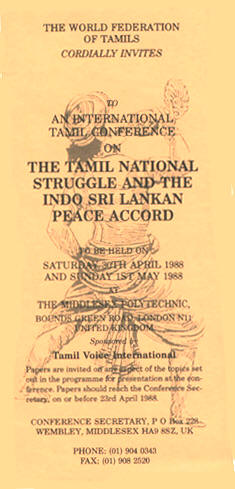 |
"The fate of the Tamils
in Sri Lanka remains
a matter of
international concern...": ICJ "The Tamil demand for a separate state
is predicated on the conviction that as an identifiable people with a
defined territory, they are entitled to self determination under
international law... Articles 1 of both the Civil and Political Covenant and
the Economic, Social and Cultural Covenant provide that 'All peoples have
the right to self determination. By virtue of the right they freely
determine their political status and freely pursue their economic, social
and cultural development;'... The Tamils could be considered to be a
'people'. They have a distinct language, culture, a separate religious
identity from the majority population, and to an extent, a defined
territory... The application of the principle of self determination in
concrete cases is difficult. It seems, nevertheless, that a credible
argument can be made that the Tamil community in Sri Lanka is entitled to
self determination. But ultimately, it will not be the legal principle of
self determination which will solve the problem of Sinhalese-Tamil relations
in Sri Lanka but rather a willingness on the part of both groups to work out
a political settlement. Self determination does not necessarily mean
`separation', as pointed out in the Principles of Friendly Relations. It may
be exercised while remaining in association or integration with an existing
state...What is essential is that the political status of the 'people'
should be freely determined by the 'people' themselves... The fate of the
Tamils in Sri Lanka remains a matter of international concern."
- Professor Virginia Leary, Report of a Mission to Sri Lanka in July-August
1981 on behalf of the International Commission of Jurists. |
|
|

Tamil National
Struggle
& Indo Sri Lanka Peace Accord
An International
Conference organised by the World Federation of Tamils at the
Middlesex Polytechnic, London, 30 April & 1 May 1988
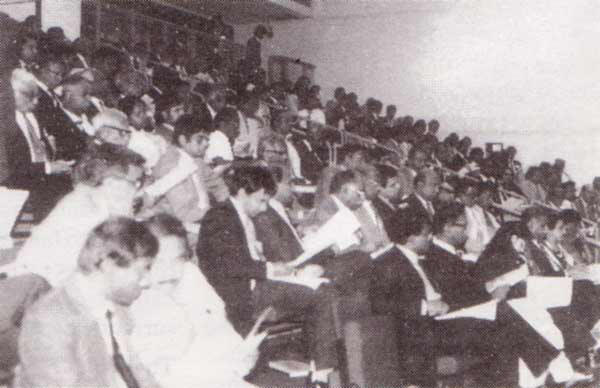
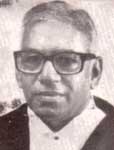 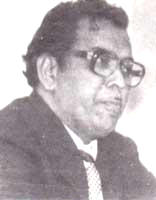 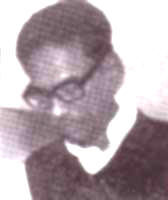 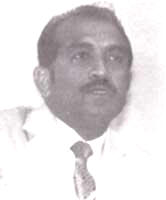 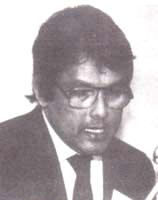 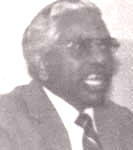 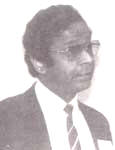
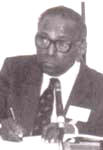 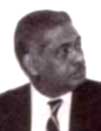 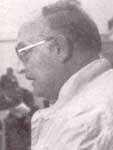 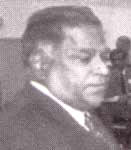 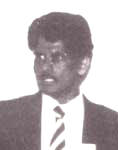 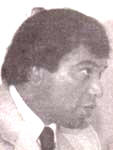 
top to bottom - l to r: Krishna Iyer, Aladi Aruna, Pala
Nedumaran, Vaiko, J.Wilson, S. Seevanyagam, James Karan,C.J.T.Thamotheram,
J.M.Rajaratnam, Rev.Wooton, K.Vaikunthavasan, S.Siriskandaraja, Ana
Pararajasingham, Karen Parker at the Conference
Conference
Aims & Programme
The Conference is intended to explore the central issues of the Tamil
national struggle and examine the extent to which the Indo Sri Lankan Peace
Accord of July 1987 satisfies the aspirations of the Tamils of Sri Lanka, and in
particular their claim to the right of self determination.
The Conference is being convened at a time when there are around 125,000
Tamil refugees in India, more than 50,000 in Europe, and more than two hundred
thousand in their own homeland in Sri Lanka. Hundreds of Tamils have been
victims of extra
judicial killings and
hundreds more have been subjected to torture. And this assault on the Tamils
in the island of Sri Lanka continues even today.
The focus of the Conference will lie in the area of the interface
between politics and human rights. Politics which is unconcerned with human
rights becomes a cynical pursuit of power for its own sake. And human rights
separated from politics often becomes the platitudinous expression of utopian
ideals.
The Conference will consider the need to give the thick edge of action to the
comments made by Professor Leo Kruper in 1984 in the Minority Rights Group
Report on International Action Against Genocide - comments which have today
assumed an urgency and an immediacy in view of the conduct of the Indian Peace
Keeping Force in the Tamil homelands in Sri Lanka:
"Genocide continues to be an odious scourge on mankind..,there are also at
the present time many immediate issues related to genocide which call for
the most urgent action...(such as) the communal massacres in Sri Lanka, in a
context of societal conflict which threatens genocide... Some of these
genocidal massacres arise out of struggles for greater autonomy, and might
be regulated by recognition of the right of self determination...there is a
great need for delegations of member States (of the United Nations) with a
strong commitment to human rights, and for non governmental organisations
with consultative status, to continue their efforts to recall the United
Nations to its responsibilities for international protection against
genocide and other gross and consistent violations of human rights. These
efforts should include...attempts to develop norms...for the exercise of the
right of self determination in a decolonised world..."
The Conference will examine in
depth the process of discrimination and differentiation which led to the
emergence of Tamil nationalism in Sri Lanka, the justification for the armed
struggle of the Tamil people, the significance of the
1985 Thimpu Declaration by all the Tamil Liberation Organisations, calling
for a political settlement on the basis of the recognition of the
right of self determination of the Tamils in the island of Sri Lanka, the
international frame of the Tamil struggle and India's role as a regional
power, and the reasons for the continued failure of the Indo Sri Lankan Peace
Accord to secure peace and the consequences of such failure.
The Conference will also consider the need to give practical effect to the
Reports of Amnesty International, the International Commission of Jurists, the
Lawasia Human Rights Standing Committee, the United Kingdom Parliamentary Human
Rights Group, International Alert, the World Council of Churches, Australian
Parliamentary Group of Amnesty International, the Emergency Committee on Sri
Lanka, the Working Group on Enforced or Involuntary Disappearances, and several
other non governmental agencies and independent observers on the gross and
consistent violations of human rights in Sri Lanka. In this context, the
Conference will consider the need to call upon the international community to
address itself to the root cause of these violations -namely, the failure to
develop norms for the exercise of the
right of self determination
by the Tamils of Sri Lanka.
The Conference will consider the need to persuade member States of the United
Nations and non governmental organisations with consultative status, that a
reluctance on their part to espouse the division of the sovereign state of Sri
Lanka, should not lead them to deny the political reality that that there are in
Sri Lanka today two nations -the Tamil nation and the Sinhala nation and that a
political settlement of the conflict in Sri Lanka can be achieved only on the
basis of recognising this political reality. And in this context the Conference
will consider the significance of the words of Professor Seton-Watson:
"The belief that every
state is a nation, or that all sovereign states are national states, has
done much to obfuscate human understanding of political realities. A
state is a legal and political organisation, with the power to require
obedience and loyalty from its citizens. A nation is a community of people,
whose members are bound together by a sense of solidarity, a common culture,
a national consciousness"
The central theme of the Conference will be that the Tamil nation and the
Sinhala nation may agree to live together by force of reason - but they cannot
be compelled to live together by force of arms - and that it is the rejection of
reason by successive Sri Lankan governments that has led to, and provides the
justification for, the armed struggle of the Tamil people.
The Conference will consider the need to re affirm the reasoned framework of
the
Thimpu Declaration which called for the recognition of the Tamils of Sri
Lanka as a nation. The Conference will focus on the need to secure the right of
self determination of the Tamils of Sri Lanka in practical terms, and in this
context the Conference will consider the need to secure international
recognition of the Liberation Tigers of Tamil Eelam as the true leaders of the
Tamil national struggle today.
|
 Conference Report - Tamil Voice International, 15 May 1988
Conference Report - Tamil Voice International, 15 May 1988The first
International Tamil Conference was held in London on 30th April and 1st May,
1988. This two-day Conference on "The Tamil National Struggle and the Indo-Sri
Lanka Accord" was convened by the World Federation of Tamils and was sponsored
by the Tamil Voice International.
Several Tamil Organisations in the U.K. including the London Tamil Forum and
the Tamil Eelam Movement helped in organising and conducting the Conference. The
Conference was followed by a public meeting on 2nd May in London, which was
attended by a large gathering of Tamils.
About 250 delegates and invitees from more than 100 Tamil Associations from
Australia, Africa, Brunei, Canada, Europe, Fiji, India, Malaysia, Middle East,
Papua New Guinea, Phillipines, Sri Lanka, UK and USA participated. The speakers
at the Conference included Mr. Justice Krishna Iyer, former Judge of the Supreme
Court of India, Mr. A.P. Venkateswaran, former Foreign Secretary to the
Government of India, Ms. Karen Parker, UN Representative for Disabled People's
International and Human Rights Advocates, Mr. P. Nedumaran, President of Kamraj
Congress, Mr. V. Gopalsamy, M.P. from the DMK, Mr. Aladi Aruna, M.P. from the
AIADMK, and Professor A.J. Wilson, Political Scientist and Mr. Thilahan of the
LTTE.
The Conference was held in four sessions: First session was presided over by
N. Seevaratnam, Chairman of the Conference Committee, the Second session by Mrs.
N. Murugiah, former chairperson of Tamil Information Centre, Third session by
C.J.T. Thamotheram until recently of the Tamil Times and the last session by N.
Satyendra, Conference Organising Committee and a delegate to Thimpu. N.
Sivanathan was the Conference Secretary.
PEACE AND JUSTICE
The theme of the Conference was the Tamil National Struggle and the Indo-Sri
Lanka Accord. Mr Justice Krishna Iyer expressed his grave concern at the failure
of the Accord to secure peace and justice for the Tamils in Sri Lanka. Mr.
Venkateswaran said that the Accord was doomed to fail as it did not resolve the
central issues of the Tamil struggle before calling upon the combatants to
surrender arms.
The Conference expressed its sense of outrage at the genocidal situation that
had developed in Sri Lanka
which had led to around 125,000 Eelam Tamils seeking refuge in India, more
than 50,000 in Europe, and more than two hundred thousand in their own homelands
in Sri Lanka - a genocidal situation which is itself a culmination of the
continuing oppression of the Tamil people by successive Sri Lankan governments
over several decades - an oppression which included the disenfranchisement of
the plantation Tamils, state-aided colonisation of Tamil homelands, the
downgrading of the Tamil language and the enactment of the Sinhala Only Act,
discriminatory employment policies, the inexcusable allocation of resources to
Tamil areas, the exclusion of the students from Universities, the refusal to
share power in a federal constitution, and state-sponsored violence against the
Tamil people as a way of intimidating them into submission.
PROGRAMME OF ACTION
Mr. Thilahar of the Political Committee of the Liberation Tigers of Tamil
Eelam who was a notable LTTE representative at the Conference stated that whilst
that LTTE recognised India's regional security concerns, Indo-Sri Lanka Accord
had failed to
address itself to the wishes and national aspirations of the Tamil people. He
appealed to all Tamil
Associations around the world to implement a programme of action, viz.
1) To publicize the human rights violations and other atrocities committed by
the Indian troops in Tamil Eelam;
2) To expose the undemocratic and totalitarian methods adopted by the Indian
government to terrorise the Tamil civilian masses and to impose upon them,
against their will, a political formula that is totally unacceptable to them;
3) To campaign for immediate cessation of hostilities and commence
negotiations with the LTTE without preconditions;
4) To campaign for the establishment of an Interim Government as pledged by
India;
5) To campaign for a political settlement based on the cardinal principles
enunciated at Thimpu giving primacy to our struggle for national
self-determination, and to support the Liberation Tigers of Tamil Eelam and to
implement the programme it placed before the Conference.
The Conference resolved that the Tamil people as an oppressed people had the
inalienable and inherent right to engage in armed struggle against that
oppression and recognised their right to self-determination.
The key note of the Conference proceedings was the unanimous resolution
recognising Velupillai Prabaharan and the Liberation Tigers of Tamil Eelam as
the true leader and only organisation respectively of the Tamil National
Struggle and in this sense this International Tamil Conference performed an
historic role. The Conference resolved that the Liberation Tigers of Tamil Eelam
are combatants in International Law, and have been recognised as such in the
Indo-Sri Lanka Accord by both the Indian Government and the Sri Lankan
Government.
FORCES OF REASON
The Conference called upon the Indian and Sri Lankan Governments, other
member states of the United Nations, and non-governmental agencies with
consultative status, to recognise the Liberation Tigers of Tamil Eelam as the
true leaders of the Tamil national struggle.
The Conference called upon the Government of India and the Government of Sri
Lanka to agree to an immediate cessation of hostilities in Sri Lanka and to
accede to the request of the LTTE for a cease-fire and commence unconditional
negotiations with a view to reaching a political settlement on the basis of the
recognition that in Sri Lanka today there are two nations - the Tamil nation and
the Sinhalese nation - and that two nations may live together by force of reason
but cannot be compelled to live together by force of arms. The Conference
appealed to the Government of India to take every step to secure the physical
safety of Velupillai Prabaharan who has today become the living symbol of Tamil
Nationalism. It also urged the member states of the United Nations to refrain
from returning Tamil refugees to Sri Lanka against their will.
|
 Conference Report - India Abroad, 6 May 1988
Conference Report - India Abroad, 6 May 1988Conferees Assail Lanka
Accord
Tamils' London Meeting Insists Colombo Backtracked
About 200 people from around the world, 100 of whom were expatriate Tamils,
were joined by Indian politicians, human right activists, political scientists
and legal luminaries in a conference to thrash out issues facing Tamils in Sri
Lanka in the wake of the Indian-Sri Lankan peace accord of last July' The
conference was organised last week by the World Federation of Tamils'
The accord was vigorously condemned
The delegates felt that the Sri Lankan government had backtracked on earlier
commitments to the Liberation Tigers of Tamil Eelam (LTTE) and that the Indian
government had done little to pressure Sri Lanka to honour those commitments'
Some of the speakers asserted that contrary to the agreement, Sri Lanka had
failed to set up an interim administration in the north and east, where Sri
Lankan Tamils lay claim to a traditional homeland in which the LTTE would have a
majority, that Colombo had failed to withdraw the Israeli secret services,
Mossad, and Western mercenaries operating on Sri Lankan soil and that it had
continued to `colonise' Tamil areas with Sinhala settlers.
Indian Betrayal Charges
The Indian government. once described as the 'friend of Tamil people'
providing the militants with moral and material support in the form of arms and
safe sanctuary for refugees had 'betrayed the Tamils some sneakers said' Amongst
the guest speakers were A.P.Venkateswaran, former foreign secretary in the
Indian government; N.Satyendra, a Tamil participant in t he 1985 Thimpu talks
involving India and Sri Lanka: V.Gopalasamy. MP of Dravida Munnetra Kazhagam:
P.Nedumaran, president of the Tamil Nadu Kamraj congress: Thilakar, memher of
the political committee of the LTTE: Karen Parker, ITN representative of the
Disabled People's International and Human Rights Advocates'US: Krishna Iyer,
former Supreme Court Justice: and Prof.A. J.Wilson, political scientist from
Canada and Aladi Aruni
Topics of Discussion
Issues discussed in the two-day conference included the historical dimension
of the Tamil struggle, the justification for the armed struggle. the
significance of the 1985 Thimpu declaration - which called for a political
settlement to the crisis on the basis of the recognition of Tamils' right to
self-determination - the international framework of the struggle, and India's
role as a regional power, the reasons for the accord and the consequences of its
alleged failure for the Tamils'
The organisers said the conference was convened at a time when many political
commentators had noted that the accord, which was hailed as a significant
diplomatic achievement, had failed to bring 'peace and normalcy' to the island
because it failed to satisfy the Tamils' hopes for an independent sovereign
state'
Doomed From the Start
Venkateswaran said the accord was doomed from the start and that it had been
entered into by 'two political leaders without the consultation of the Tamil
people' He warned that the consequences of the accord, particularly charges that
atrocities had been committed by the Indian peace keeping force, would have
grave implications for Indian-Sri Lankan relations in the years ahead.
Similarly, Iyer declared that the accord had betrayed the collective rights
of the Tamils, that it had been relegated to the 'dustbin' by both governments
and that it had 'no legality to begin with' He said it was a national
humiliation that over 100,000 Indian troops should be sent to Sri Lanka to seek
out one man - Velupillai Prabaharan, the leader of the LTTE.
Delegates and speakers expressed anguish over the alleged atrocities of the
Indian troops'
Western Nations Accused
Parker alleged that certain Western powers had an interest in keeping India
embroiled in the problems of Sri Lanka. There is a conspiracy among certain
nations to tarnish India's reputation as a non-aligned power in the world, she
said' She also declared that the prospects of peace in Sri Lanka had been
sabotaged both internally and externally. She said, various groups in Sri Lanka
had been rearmed by foreign powers after they had agreed to lay down their
weapons as part of the agreement. The purpose. she said, was to undermine and
weaken the strength of the LTTE. Aruna suggested vet another purpose - that Sri
Lankan President Junius R. .Jayewardene had 'convinced' Prime Minister Rajiv
Gandhi that if he supported the Tigers in their fight for a homeland, he might
one day be confronted with the possibility of Tamil Nadu wanting to secede from
the Indian union on similar grounds'
No Evidence, He Admits
Although he noted that there was no evidence to support allegations against
Jayewardene, Aruna also added that he was for the unity and integrity' of India'
However, he said that continued interference by New Delhi could lead to such a
situation'
Venkateswaran said that the time had come for the international Tamil
community to raise the consciousness of their brothers in Tamil Nadu. "This is
the right time", he said, "for Tamils to carry the message to Tamil Nadu, to
tell their brethren that they are being told a pack of lies'"
1985 Framework
Both governments of India and Sri Lanka were urged to agree to accede to the
request of the LTTE for an immediate cease-fire, thus leading to all three
parties agreeing on an `independent, impartial and acceptable cease-fire
monitoring committee' leading to a political settlement within the framework of
the 1985 Thimpu declaration.
Delegates also urged the price on the head of Prabaharan be lifted, and no
country should send back refugees to Sri Lanka against their will.
The conference also resolved to set up an international secretariat to
promote the political stand of the LTTE and to compile a dossier on human rights
violations'
|
|